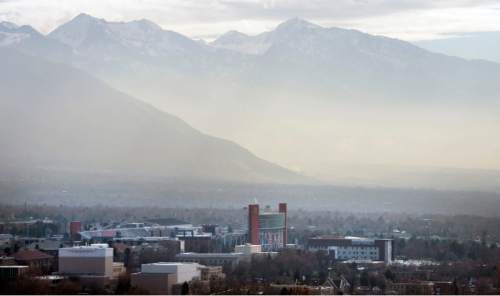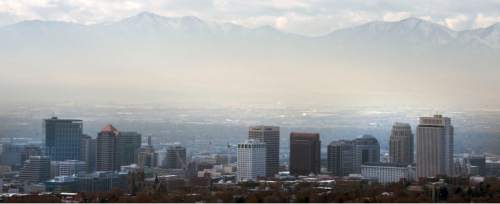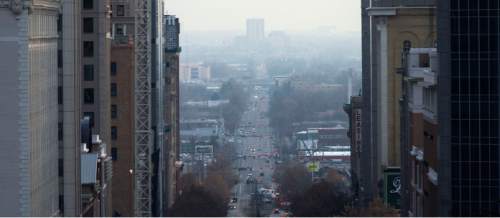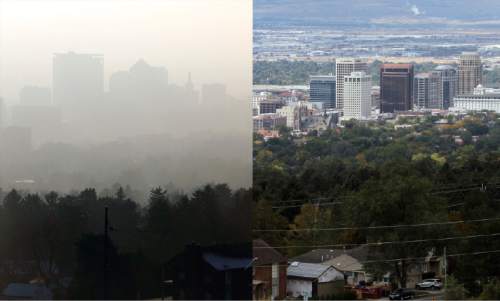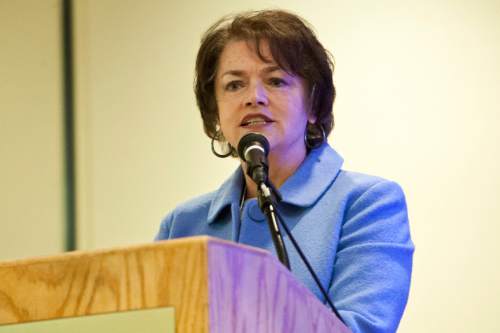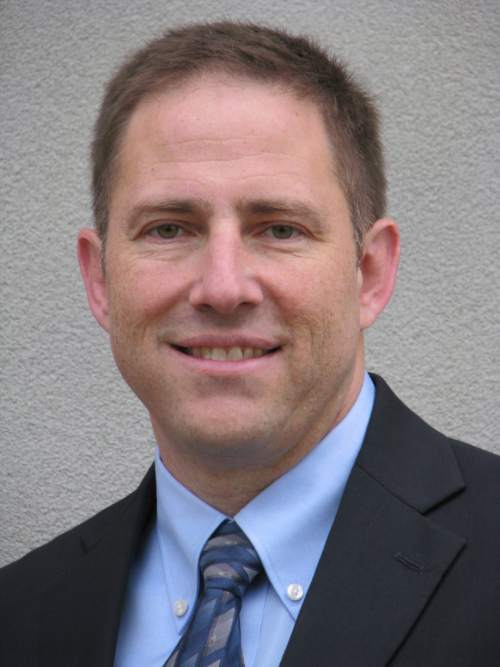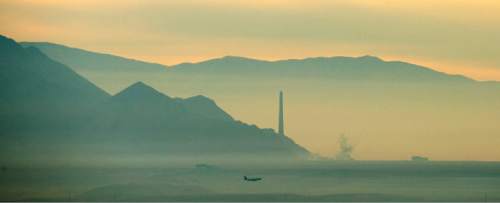This is an archived article that was published on sltrib.com in 2015, and information in the article may be outdated. It is provided only for personal research purposes and may not be reprinted.
Utah's air quality has improved in the past decade, but must continue to make gains if the state wants to avoid relapsing, says Bryce Bird, director of the Utah Division of Air Quality.
Public awareness of air pollution has also increased in recent years, leading residents to take a more active role in the creation of Utah air policy — but some Utah lawmakers believe excessively negative reports about pollution have caused residents undue concern about air quality.
Statewide, Utah emissions dropped by 30 percent between 2002 and 2011, Bird told members of a legislative committee on Wednesday. On the Wasatch Front, emissions decreased by 35 percent during that same time.
But, Bird told members of the Natural Resources, Agriculture and Environment Interim Committee, air quality compliance remains a concern.
Bird said Utah still fails to meet federal standards on about 5 percent of days each year — an average of 17 days.
That does mean, he said, that Utah's air quality is good on 95 percent of days. But in order to comply with federal standards, Utah would need to cut its days of non-compliance by more than half, to seven days per year.
Utah's situation is further complicated by the severity of the emissions overages on the days they do occur. While Utah may not experience non-compliant air conditions for a third of the year — Los Angeles, for comparison, averages 100 days of non-compliance, he said — Utah's air has spiked to the highest levels of pollution in the nation during some of those episodes.
Bird said he was proud of the progress Utah has made, but warned that the state's projected rate of growth would result in more emissions and could cause the trend to reverse in the future unless the state takes further action.
But that is easier said than done in a state where natural weather phenomena, such as the inversion, make maintaining clean air especially difficult, Bird said.
"We've got all the easy stuff so far," he said. "It's getting harder and more impactful to the public."
He said other factors, such as the recent finding that 97 percent of ozone emissions in certain rural Utah areas originate from sources outside the state, further complicate the task of achieving compliance. And with the Environmental Protection Agency issuing strict new standards every few years, compliance has become a moving target, Bird said.
"We're always dealing with a changing playing field with new standards coming down the pipeline," he said.
Utah has also seen success in raising awareness of air quality issues and in convincing residents to take voluntary action to improve air quality. Bird said a recent media blitz, which he said reached an estimated 99.7 percent of Utah's population, had a success rate of about 68 percent — meaning more than two-thirds of the residents who saw an ad about improving Utah's air decided to take action.
Bird said the DAQ has also seen public participation — such as public comment on DAQ actions — increase threefold since 2009.
According to a separate but related presentation before Bird's report, an Envision Utah survey found that Utahns rank air pollution as the No. 1 drawback of living in Utah. Another survey by Envision Utah found Utahns rank air pollution as their third-highest concern, after concerns about water and funding for education.
Members of the Natural Resources, Agriculture and Environment Interim Committee, especially Sen. Margaret Dayton, R-Orem, said they felt the public's concern about air pollution was the result of negativity in reports from entities such as the DAQ and Envision Utah, as well as in the media.
Dayton said she felt the DAQ and other entities should put more emphasis on the positive aspects of Utah's air quality.
But Bird said he felt the public's opinion of Utah's air quality wasn't unfounded.
"On the bad days, it's still not acceptable," he said. "My family notices. I notice. It's one of those things that takes down from this great place we live."


